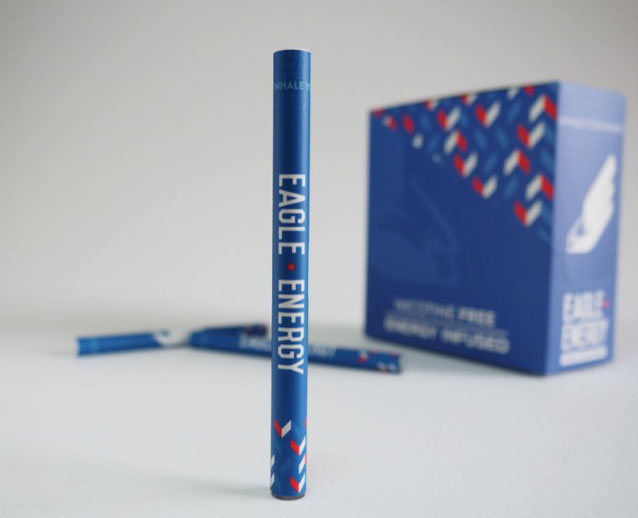
Forget coffee and energy drinks—now you can inhale your caffeine.
Perhaps taking a cue from increasingly popular e-cigarettes, marketers have now created a way for people to vape their energy. The New York Times reported on Wednesday that products like Eagle Energy Vapor allow people to forgo their morning cup o’ joe and puff their caffeine instead. Each inhaler boasts a pretty small amount of caffeine, which the company says comes from natural sources like guarana, taurine, and ginseng (stimulants that are also common among energy drinks). As the Times describes it: “Think of it as a Red Bull for the lungs.”
No surprise, some experts in the medical community find this trend problematic. America is, evidently, a nation in need of a pick-me-up, at least if you consider the boom of products that contain caffeine, like energy drinks, caffeinated water and snacks and powdered caffeine. As I recently reported in TIME, the U.S. energy drink business is estimated to grow more than 11% by 2019 to an estimated $26.6 billion in yearly revenue.
So what’s the big deal?
From a health perspective, caffeine is tricky business. Many experts are concerned about some caffeinated products—particularly energy drinks. One of the primary arguments is that unlike coffee or soda, many energy drinks (and the new caffeine inhalers) contain multiple stimulants aside from synthetic caffeine. How these ingredients interact in combination is largely unknown. In addition, many doctors and health watchdogs are dissatisfied with the way these products are regulated. Manufacturers can choose to market their products as dietary supplements or as beverages, neither of which require pre-market safety approval by the FDA or any other public-health agency. According to the Times, the FDA has not reviewed the new caffeine inhalers for safety, either.
The effects of inhaling caffeine are also a gray area. “The way our bodies handle caffeine that is inhaled can be very different from when caffeine is in our food or drink,” says Mary M. Sweeney, a postdoctoral research fellow at Johns Hopkins University School of Medicine. “Even if an inhaled product delivers the same dose of caffeine as a cup of coffee, it may have different subjective effects for people because the time-course might be different.”
In 2013, the FDA announced that amid a growing trend of manufacturers adding caffeine to food products (like gum, for example), the agency was launching a safety investigation into the matter. It’s now 2015, and that information is still not available to consumers. The FDA says it is continuing to look into it.
The Eagle Energy Vapor inhaler’s aesthetic similarities to e-cigarettes are undeniable. And while the jury is still out in regards to the overall danger of e-cigarettes, recent federal data has shown use tripled among middle and high school students in just one year. Could caffeine inhalers attract young people in a similar way? Are they as dangerous as medical experts believe other caffeinated products are? We don’t know. But what Americans should know is that just because a new caffeinated product is on the market doesn’t mean that it’s undergone a rigorous safety testing or approval process, or that doctors think it’s safe.
“What troubles me most about this particular product is that the flavor composition appears to be similar to candy; thus, it could be attractive to children and adolescents,” says Steven Meredith, a postdoctoral fellow at the University of Connecticut School of Medicine. “The long-term effects of caffeine on the developing brains of children and adolescents are still relatively unknown. But, caffeine consumption interferes with sleep, and sleep is necessary for learning. Thus, long-term cognitive effects of excessive caffeine consumption at a young age is certainly plausible.”
While the FDA says it’s continuing to investigate caffeinated products, it may be in your best interest to stick to stimulants that most medical experts can get behind: coffee.
More Must-Reads from TIME
- Donald Trump Is TIME's 2024 Person of the Year
- Why We Chose Trump as Person of the Year
- Is Intermittent Fasting Good or Bad for You?
- The 100 Must-Read Books of 2024
- The 20 Best Christmas TV Episodes
- Column: If Optimism Feels Ridiculous Now, Try Hope
- The Future of Climate Action Is Trade Policy
- Merle Bombardieri Is Helping People Make the Baby Decision
Contact us at letters@time.com